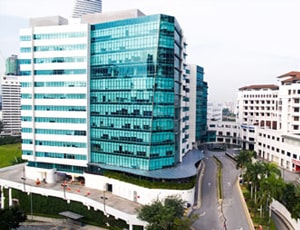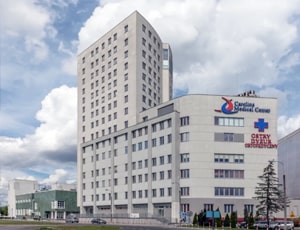Birmingham hip resurfacing surgery is an alternative to the total hip replacement surgery, which is indicated in patients with advanced arthritis of the hip. The latter could be performed as an anterior hip replacement or posterior hip replacement.
Both hip resurfacing and total hip replacement procedures are, in a way, a form of hip replacement. In Birmingham hip resurfacing surgery, the femoral head of the bone is not removed.
Instead, it is trimmed and capped with a metal covering and the damaged bone is replaced with a metal cup. In total hip replacement surgery (anterior hip replacement and posterior hip replacement), the femoral head and neck of the bone are removed and replaced with a metal ball and a metal stem.
Patients with advanced arthritis of the hip are recommended to undergo hip resurfacing surgery. Hip resurfacing is not suitable for all patients. Patients below 60 years who have strong healthy bones are allowed to undergo hip resurfacing surgery. Patients with femoral neck cysts, severe bone loss, and osteoporosis are not suitable for this procedure.
Before the treatment, you should talk to your hip resurfacing surgeon to set realistic expectations out of the procedure. Well before the day of the surgery, the doctor would conduct a complete physical examination to confirm that you do not have a condition that may interfere with the success of the surgery.
Additionally, you will be required to undergo a few examinations such as X-ray and blood tests. You will be advised to stop all medications at least a week before the surgery. You should inform your surgeon if you are taking medications for the treatment or control of a specific condition such as diabetes or hypertension.
You should stop smoking well in advance and maintain a healthy diet and lifestyle for weeks before the surgery. In case you are overweight, losing some weight before the surgery helps improve the chances of successful outcomes because of less stress on the new joint.
Hip resurfacing surgery cost varies from one part of the world to the other. Additionally, it also varies depending on the type of hospital and the city that you choose to get operated in.
Nonetheless, the hip resurfacing surgery cost in India is much less than any other country in the world. It is estimated that the cost of hip resurfacing in India is less than two-thirds of what it costs in other popular medical tourism destinations.
The cost of hip resurfacing depends on several factors. It depends on the choice of hospital, the choice of city, the extent of damage to the hip the number of hip resurfacing surgeons involved, and the approach used to conduct the surgery (open or minimally invasive).
| Treatment cost in Hip Resurfacing Surgery Cost in India: | 7000 |
| Treatment cost in Hip Resurfacing Surgery Cost in Turkey: | n/a |
| Treatment cost in Hip Resurfacing Surgery Cost in United Arab Emirates: | 17700 |
| Treatment cost in Hip Resurfacing Surgery Cost in Israel: | n/a |
| Treatment cost in Hip Resurfacing Surgery Cost in Thailand: | n/a |
| Treatment cost in Hip Resurfacing Surgery Cost in Singapore: | 13000 |
| Treatment cost in Hip Resurfacing Surgery Cost in Tunisia: | n/a |
| Treatment cost in Hip Resurfacing Surgery Cost in Saudi Arabia: | n/a |
| Treatment cost in Hip Resurfacing Surgery Cost in South Africa: | n/a |
| Treatment cost in Hip Resurfacing Surgery Cost in Lithuania: | n/a |
| Treatment cost in Hip Resurfacing Surgery Cost in Switzerland: | n/a |
| Treatment cost in Hip Resurfacing Surgery Cost in Czechia: | n/a |
| Treatment cost in Hip Resurfacing Surgery Cost in Hungary: | n/a |
| Treatment cost in Hip Resurfacing Surgery Cost in Malaysia: | n/a |
| Treatment cost in Hip Resurfacing Surgery Cost in Morocco: | n/a |
| Treatment cost in Hip Resurfacing Surgery Cost in Poland: | n/a |
| Treatment cost in Hip Resurfacing Surgery Cost in South Korea: | 25000 |
| Treatment cost in Hip Resurfacing Surgery Cost in United Kingdom: | 18500 |

Tel Aviv, Israel
Assuta Medical Center is a leading private hospital in the capital city of Tel Aviv in Israel. Assut...more
![]() Airport Transfer
Airport Transfer
![]() Choice of Meals
Choice of Meals
![]() Interpreter
Interpreter
![]() TV inside room
TV inside room

Kuala Lumpur, Malaysia
History Parkway Pantai Hospital in Kuala Lumpur, Malaysia is operating under the Parkway Pantai gro...more
![]() Airport Transfer
Airport Transfer
![]() Choice of Meals
Choice of Meals
![]() Interpreter
Interpreter
![]() SIM
SIM

Warsaw, Poland
History Carolina Medical Center is one of the best and clinically advanced orthopedics and sports m...more
![]() Airport Transfer
Airport Transfer
![]() Choice of Meals
Choice of Meals
![]() Interpreter
Interpreter
![]() SIM
SIM

Orthopaedics & Joint Replacement Surgeon
Ulus, Turkey
22 Years of experience
USD 240 for video consultation

Orthopaedic Surgeon
Noida, India
22 Years of experience
USD 35 for video consultation

Orthopaedic Surgeon
New York, United States
40+ Years of experience
USD 650 for video consultation

Orthopaedic Surgeon
Ghaziabad, India
12 Years of experience
USD 28 for video consultation
Q. What are the advantages of hip resurfacing over total hip replacement surgery?
A. Hip resurfacing surgery has the reduced risk of joint dislocation and improved range of movement.
Q. What can be done to make hip resurfacing recovery easier?
A. Being fit and healthy and performing exercises recommended by the physiotherapist makes recovery easier.
Q. What happens when metal components get loose?
A. Loosening of the metal components is corrected by performing a total hip replacement surgery.
Q. When should a hip resurfacing surgery be performed?
A. The hip replacement surgery can be performed in patients with arthritis, congenital deformities, and necrosis.